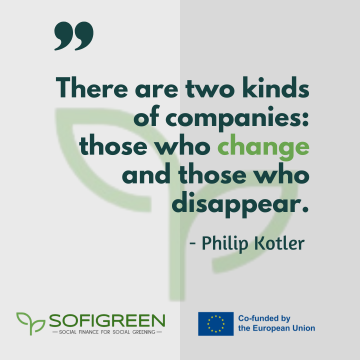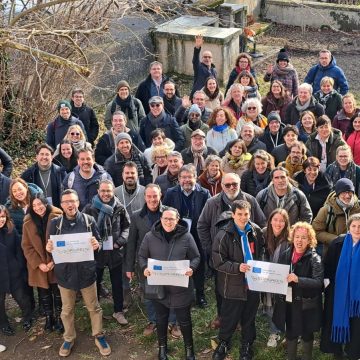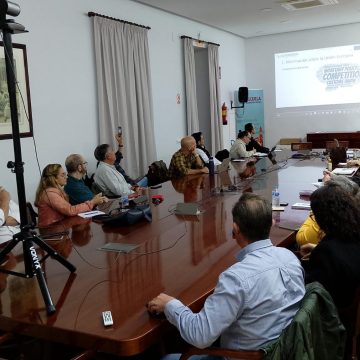The benefits of investing in transition, best practices and group work: this is what happened at the first SOFIGREEN cross-border event
Reuse of bEer SpenT
grAin
foR bioplasTics
Plenty of food for thought, ideas and innovative solutions were the protagonists of the first of three cross-border events planned by the European project SOFIGREEN, held on Thursday 10 October in Messina.
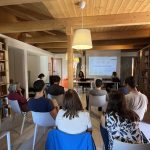 The first session was led by Valentina Radetic (Up2You) and Alice Casiraghi (Forest Valley), experts involved who then followed the participants in their group work. Valentina Radetic delved into the competitive advantages of sustainability, focusing on decarbonisation solutions that companies can implement. Today there is certainly greater awareness of the issues and the challenge therefore becomes to act concretely in this direction. With Alice Casiraghi, UX designer and co-founder of Forest Valley, we move on to the role of design for the environmental transition, seeing how creative and design choices also generate positive impacts.
The first session was led by Valentina Radetic (Up2You) and Alice Casiraghi (Forest Valley), experts involved who then followed the participants in their group work. Valentina Radetic delved into the competitive advantages of sustainability, focusing on decarbonisation solutions that companies can implement. Today there is certainly greater awareness of the issues and the challenge therefore becomes to act concretely in this direction. With Alice Casiraghi, UX designer and co-founder of Forest Valley, we move on to the role of design for the environmental transition, seeing how creative and design choices also generate positive impacts.
Best practices from Italy, Spain and France
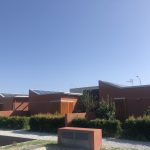 Giuppi Sindoni, president of EcosMed, illustrated the cooperative’s vision and actions, which develops systemic intervention models in the territories, interweaving transversal competences with the aim of changing some trajectories. Regeneration does not stop at places but is enriched by social, artistic and cultural interventions, generating responsible socioeconomic models capable of providing local answers to global problems. An example of this is the place hosting the event, the Maregrosso Community HUB: an area once occupied by one of the city’s historic slums that has become a virtuous example of social housing with services dedicated to early childhood.
Giuppi Sindoni, president of EcosMed, illustrated the cooperative’s vision and actions, which develops systemic intervention models in the territories, interweaving transversal competences with the aim of changing some trajectories. Regeneration does not stop at places but is enriched by social, artistic and cultural interventions, generating responsible socioeconomic models capable of providing local answers to global problems. An example of this is the place hosting the event, the Maregrosso Community HUB: an area once occupied by one of the city’s historic slums that has become a virtuous example of social housing with services dedicated to early childhood.
From Spain comes the experience of Hilodoble, a company that creates bags, backpacks and fanny packs from recycled materials, while Maison de l’Economie Sociale et Solidaire from France, a group of cooperatives committed to responding to some of the problems of the region.
Group work
The day ended with group work: divided into two classes, each supervised by an expert, the participants discussed the issues addressed and carried out practical exercises on them. Together with Valentina Radetic, they grappled with methods of calculating the carbon footprint, the first step a company must take if it wants to commit to the transition. Followed by Alice Casiraghi, on the other hand, they analysed the CO2 emissions of some ingredients using climate cards and reasoning on how to make our food and recipes more sustainable as well.
Upcoming events
The second cross-border event will be held on 29 October and will be organised in Spain by FAECTA. Fundraising issues will be explored in depth with a focus on planning for European calls for tenders. The third and final event will be held in France on 6 and 7 February and will be attended by all 95 companies from the three countries involved in the project.
Co-funded by the European Union. Views and opinions expressed are however those of the authors only and do not necessarily reflect those of the European Union or EISMEA. Neither the European Union nor the granting authority can be held responsible for them.



